Roger T. Ames visits NSYSU, introduces Zoetology to Taiwan
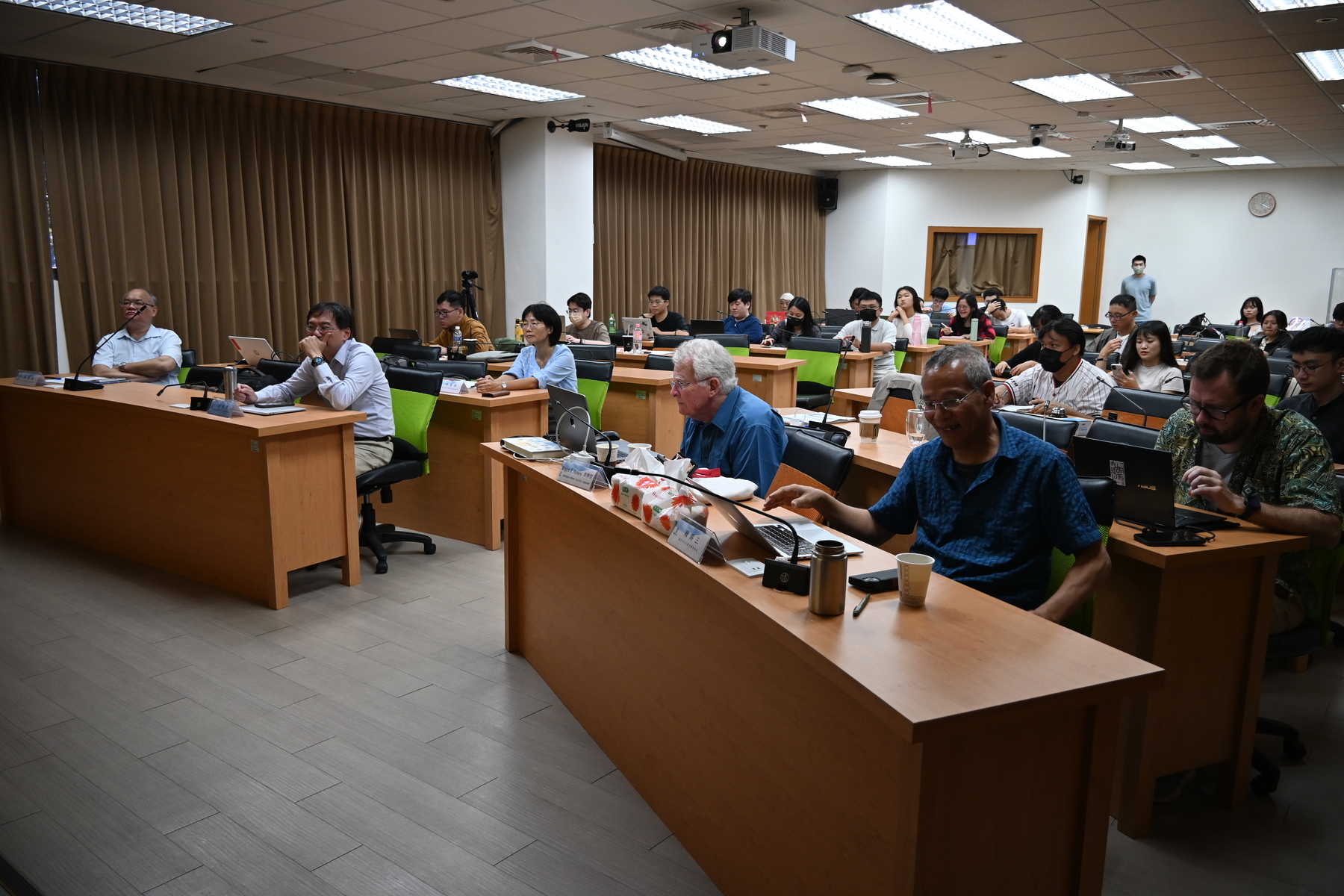

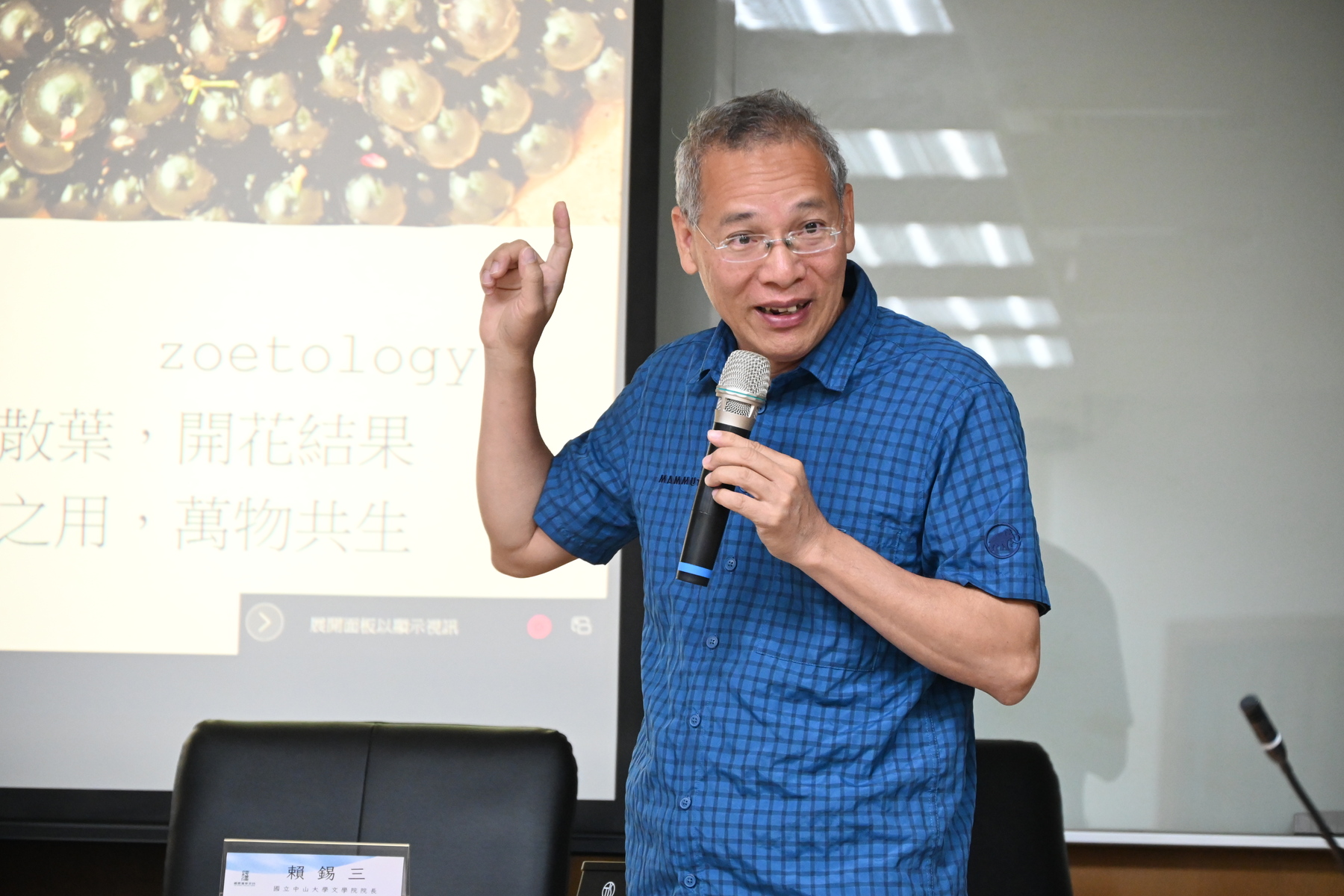
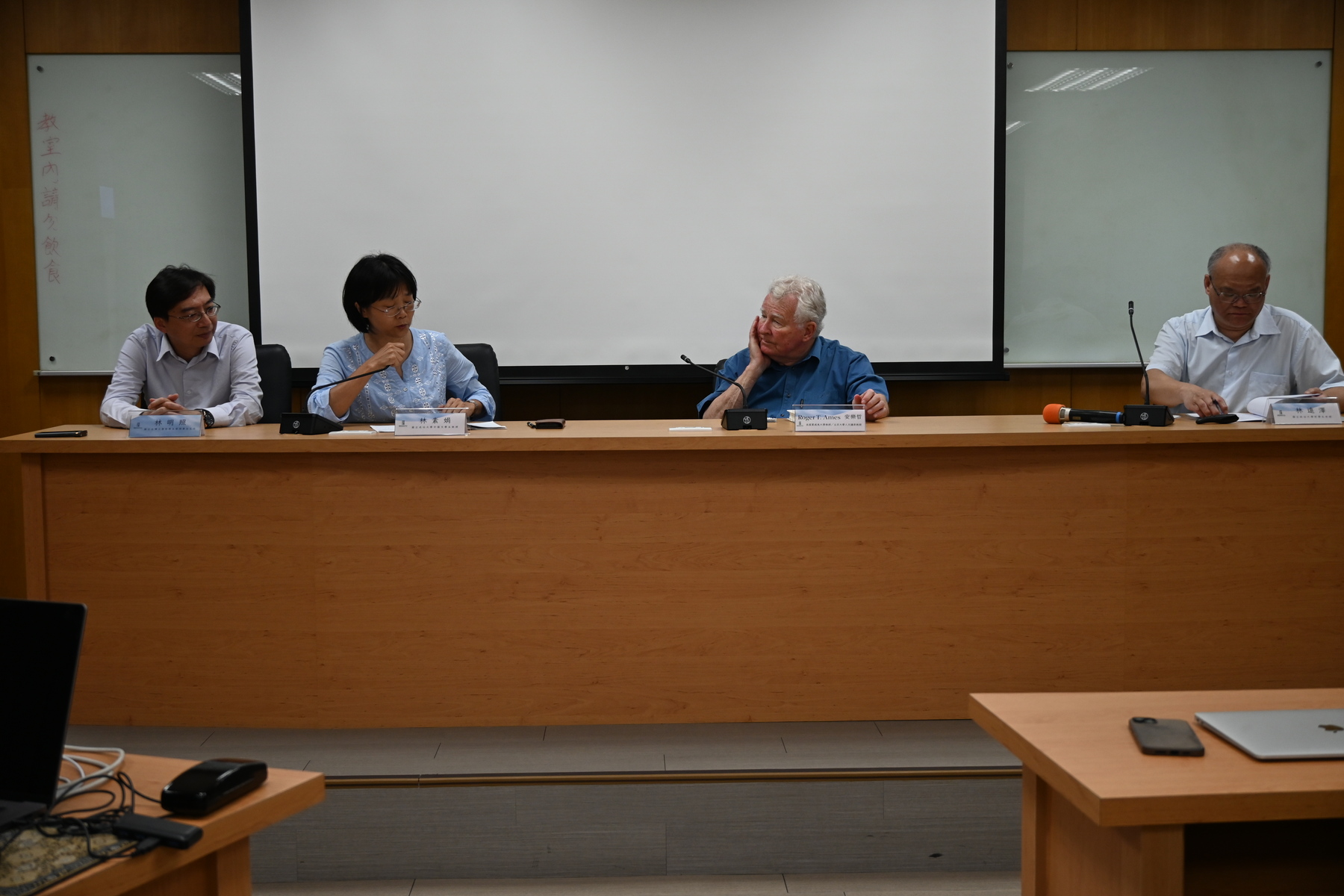
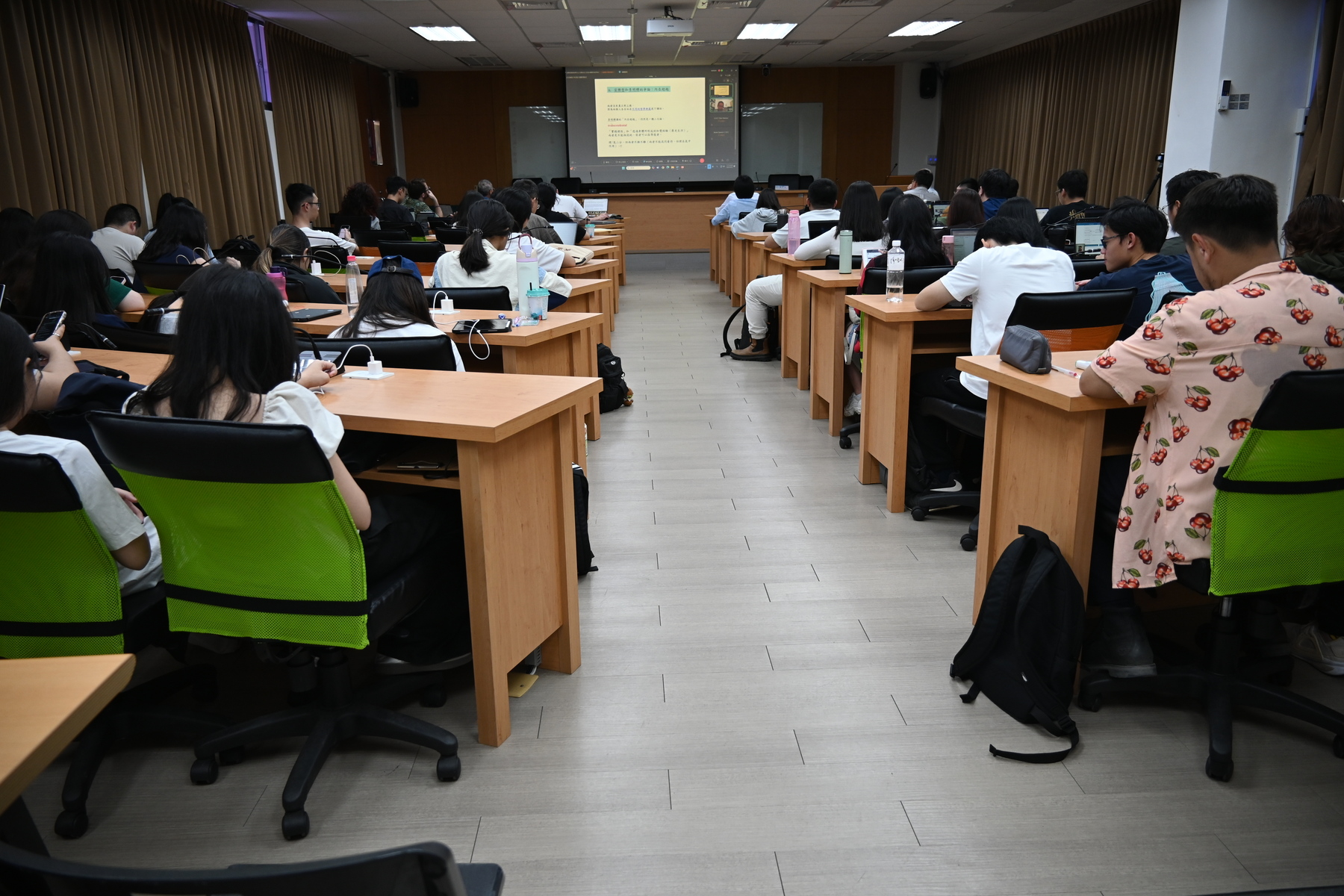
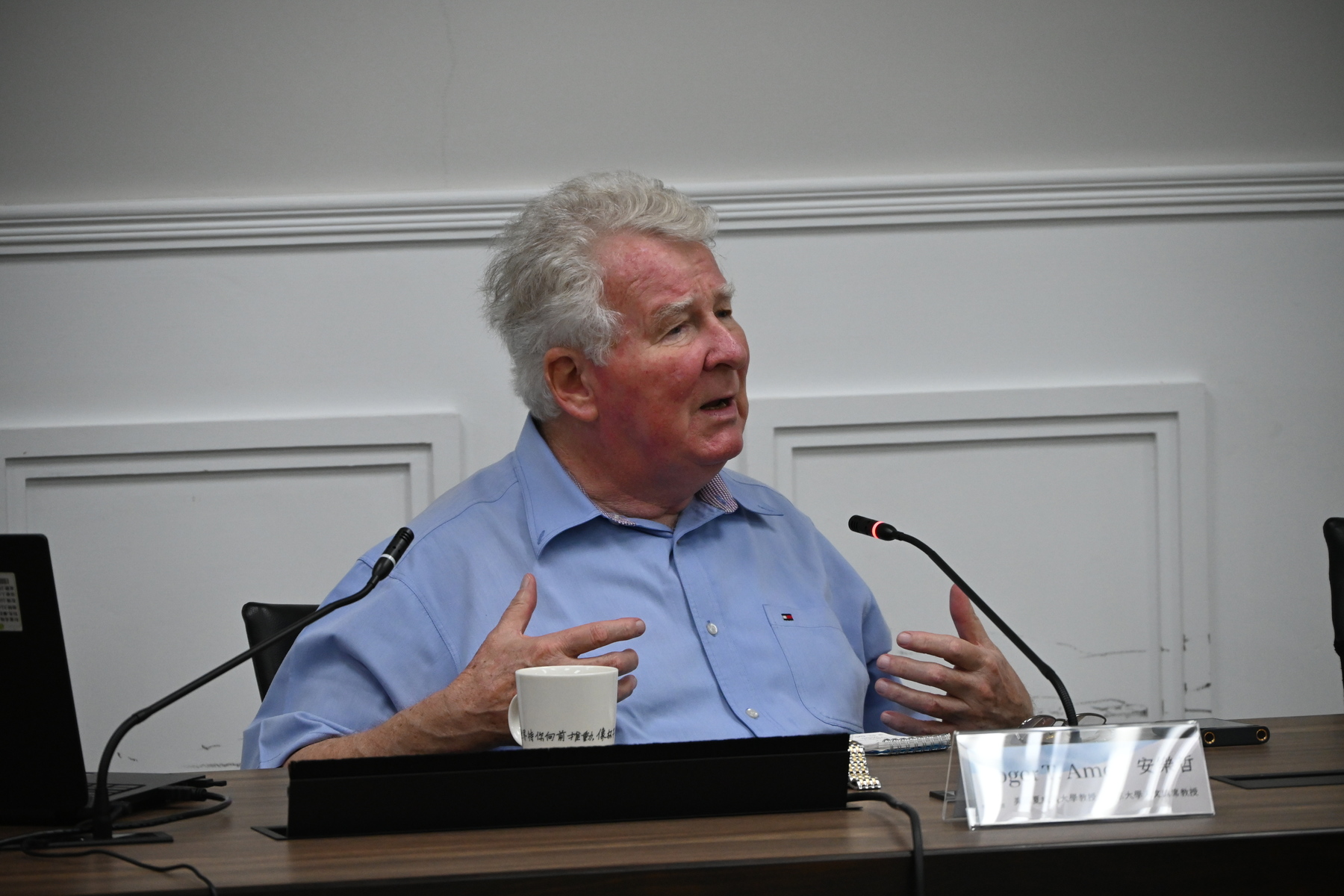
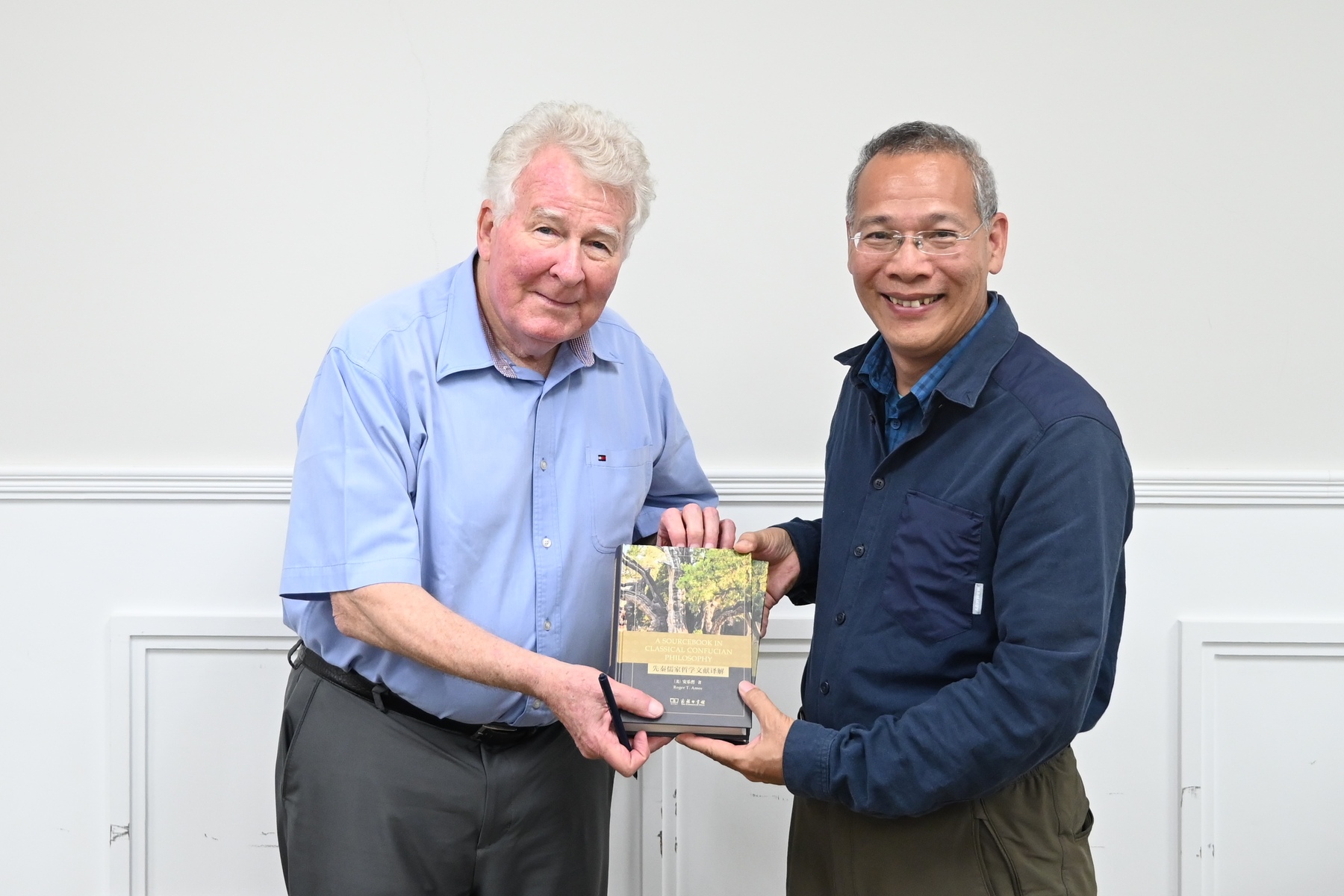
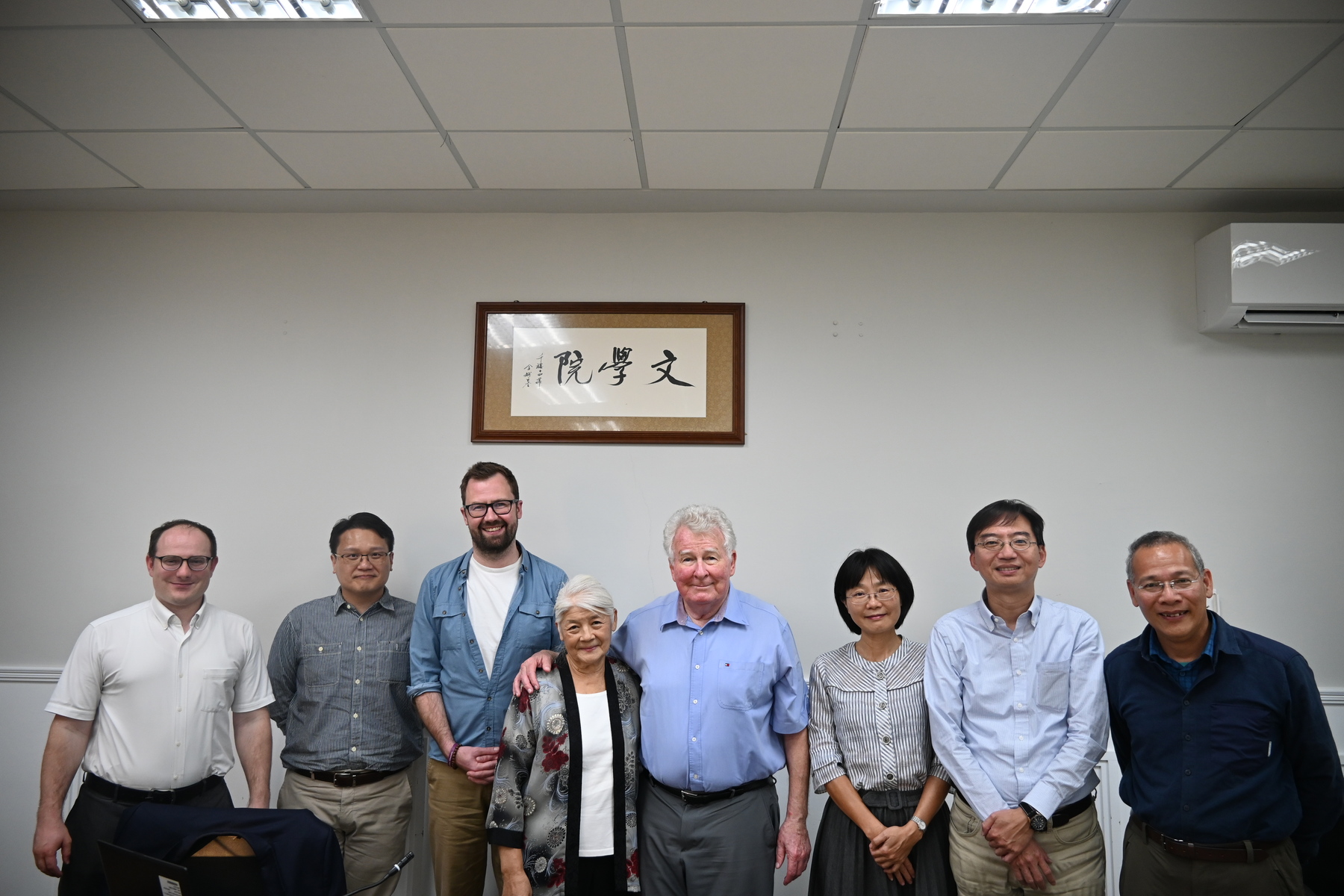
2025-04-30
The world renowned transcultural philosopher Roger T. Ames visited National Sun Yat-sen University's (NSYSU) campus in Sizihwan, Kaohsiung, sparking a fulsome week of intellectual exchange and engagement. This was the kickoff event marking the formal establishment of the Center for Global Co-Becoming and International Sinology at the College of Liberal Arts, led by professors Lai Hsi-san and Mark McConaghy. Roger Ames is currently Humanities Chair Professor at Peking University, after having worked as a professor of philosophy at the University of Hawaii at Manoa for almost forty years. Throughout that time professor Ames became a trailblazer in transcultural philosophy, translating, exegeting, and teaching the classic texts of pre-Qin Chinese philosophy, bringing them to the world. He is the author and editor of dozens of books on Chinese philosophy, including on both the Confucian and Daoist canon.
His week visiting NSYSU was divided between several distinct academic events. The first event was a lecture professor Ames gave entitled "Living Chinese Philosophy: Zoetology as First Philosophy (生生的中國哲學:生生大德為第一哲學)," in which professor Ames introduced to Taiwanese scholars and students the approach to philosophical thinking he has developed over his forty years of scholarship. This approach is what professor Ames defines has "Zoetology 生生論," which he explained is a way of apprehending the immanent dynamism of the world, an approach that finds its philosophical origins in the Yijing (Book of Changes). As oppose to ontological approaches to the world which posits a God above this world or a transcendent set of principles that define the cosmos, Zoetology presents a world of persistent change, growth, and motion among a wide variety of elements, a process of growth that is imminent to the world itself, requiring no prime mover or transcendent a-priori. Professor Ames explained that both ontological and zoetological approaches to the world can be found in the Chinese and Western traditions, with zoetological thinkers ranging from Zhuangzi, Confucius, and Mencius to Ralph Waldo Emerson, Baruch Spinoza, John Dewey, and Frederich Nietzsche. A zoetological approach to the world enables ethics to be rooted within everyday experience, avoiding the imposition of transcendental absolutes upon the world that can produce expulsion of, or violence against, others who do not conform to them.
The other lecture professor Ames delivered was entitled "Making Yourself at Home: The Familial Roots and Branches of Confucian Philosophy," in which professor Ames engaged with a critical question for our time: is there a universal moral vision that can be productively applied to all people across the world? Engaging with the work of moral philosopher Michael Walzer, Ames argues that while we cannot have a dogmatic or inflexible moral standard, we still need some minimal moral vision by which to bound people together. While Walzer believes that such a minimal moral vision can be presented by the notion of a generalized justice, Ames argues that a second-order language of justice is too abstract to be genuinely moving to people. Ames instead proposed the Confucian notion of family feeling (孝) as one potential means of building a minimalist morality for the world. Moving through close readings of a variety of Confucian classics, including the Analects and the Mencius, Ames showed how xiao lays at the heart of a Chinese life-world that is grounded in benevolent reciprocity across generations. Well-ordered families lay at the heart of well-ordered states, generating a society of ren (仁), understood as "consummate conduct in one's roles and relations." For Ames, xiao as empathetic care across generations and within a society is China's gift to the world, and can provide the basis for anchoring moral conduct within the 21st century.
Aside from his lectures, Roger Ames also participated in a workshop that saw a collection of international scholars from around the world assemble at NSYSU to discuss the complexities of Ames' philosophical body of work. Scholars who participated in the workshop included the University of Chicago's Brook A. Ziporyn, the University of Macau's Hans George Moeller, East China Normal University's Paul J. Ambrosio, Vilnius University's Vytis Silius, as well as luminaries of Taiwan's philosophical scene, including National Chengchi University's Lin Yuan-ze, National Taiwan University's Lin Mingzhao, and National Cheng-kung University's Lin Su-juan. The assembled scholars provided critical perspectives on professor Ames's major philosophical ideas, most notably the notion of Zeotology as first philosophy as well as family feeling as the basis for a universal ethics in the 21st century. The workshop marked the first time that the Taiwanese academic community has grappled in detail with Ames's work, and a monograph dedicated to analyzing the importance of his thought to transcultural philosophy as a whole is planned.
The world renowned transcultural philosopher Roger T. Ames visited National Sun Yat-sen University's (NSYSU) campus in Sizihwan, Kaohsiung, sparking a fulsome week of intellectual exchange and engagement. This was the kickoff event marking the formal establishment of the Center for Global Co-Becoming and International Sinology at the College of Liberal Arts, led by professors Lai Hsi-san and Mark McConaghy. Roger Ames is currently Humanities Chair Professor at Peking University, after having worked as a professor of philosophy at the University of Hawaii at Manoa for almost forty years. Throughout that time professor Ames became a trailblazer in transcultural philosophy, translating, exegeting, and teaching the classic texts of pre-Qin Chinese philosophy, bringing them to the world. He is the author and editor of dozens of books on Chinese philosophy, including on both the Confucian and Daoist canon.
His week visiting NSYSU was divided between several distinct academic events. The first event was a lecture professor Ames gave entitled "Living Chinese Philosophy: Zoetology as First Philosophy (生生的中國哲學:生生大德為第一哲學)," in which professor Ames introduced to Taiwanese scholars and students the approach to philosophical thinking he has developed over his forty years of scholarship. This approach is what professor Ames defines has "Zoetology 生生論," which he explained is a way of apprehending the immanent dynamism of the world, an approach that finds its philosophical origins in the Yijing (Book of Changes). As oppose to ontological approaches to the world which posits a God above this world or a transcendent set of principles that define the cosmos, Zoetology presents a world of persistent change, growth, and motion among a wide variety of elements, a process of growth that is imminent to the world itself, requiring no prime mover or transcendent a-priori. Professor Ames explained that both ontological and zoetological approaches to the world can be found in the Chinese and Western traditions, with zoetological thinkers ranging from Zhuangzi, Confucius, and Mencius to Ralph Waldo Emerson, Baruch Spinoza, John Dewey, and Frederich Nietzsche. A zoetological approach to the world enables ethics to be rooted within everyday experience, avoiding the imposition of transcendental absolutes upon the world that can produce expulsion of, or violence against, others who do not conform to them.
The other lecture professor Ames delivered was entitled "Making Yourself at Home: The Familial Roots and Branches of Confucian Philosophy," in which professor Ames engaged with a critical question for our time: is there a universal moral vision that can be productively applied to all people across the world? Engaging with the work of moral philosopher Michael Walzer, Ames argues that while we cannot have a dogmatic or inflexible moral standard, we still need some minimal moral vision by which to bound people together. While Walzer believes that such a minimal moral vision can be presented by the notion of a generalized justice, Ames argues that a second-order language of justice is too abstract to be genuinely moving to people. Ames instead proposed the Confucian notion of family feeling (孝) as one potential means of building a minimalist morality for the world. Moving through close readings of a variety of Confucian classics, including the Analects and the Mencius, Ames showed how xiao lays at the heart of a Chinese life-world that is grounded in benevolent reciprocity across generations. Well-ordered families lay at the heart of well-ordered states, generating a society of ren (仁), understood as "consummate conduct in one's roles and relations." For Ames, xiao as empathetic care across generations and within a society is China's gift to the world, and can provide the basis for anchoring moral conduct within the 21st century.
Aside from his lectures, Roger Ames also participated in a workshop that saw a collection of international scholars from around the world assemble at NSYSU to discuss the complexities of Ames' philosophical body of work. Scholars who participated in the workshop included the University of Chicago's Brook A. Ziporyn, the University of Macau's Hans George Moeller, East China Normal University's Paul J. Ambrosio, Vilnius University's Vytis Silius, as well as luminaries of Taiwan's philosophical scene, including National Chengchi University's Lin Yuan-ze, National Taiwan University's Lin Mingzhao, and National Cheng-kung University's Lin Su-juan. The assembled scholars provided critical perspectives on professor Ames's major philosophical ideas, most notably the notion of Zeotology as first philosophy as well as family feeling as the basis for a universal ethics in the 21st century. The workshop marked the first time that the Taiwanese academic community has grappled in detail with Ames's work, and a monograph dedicated to analyzing the importance of his thought to transcultural philosophy as a whole is planned.
Click Num:
Share
